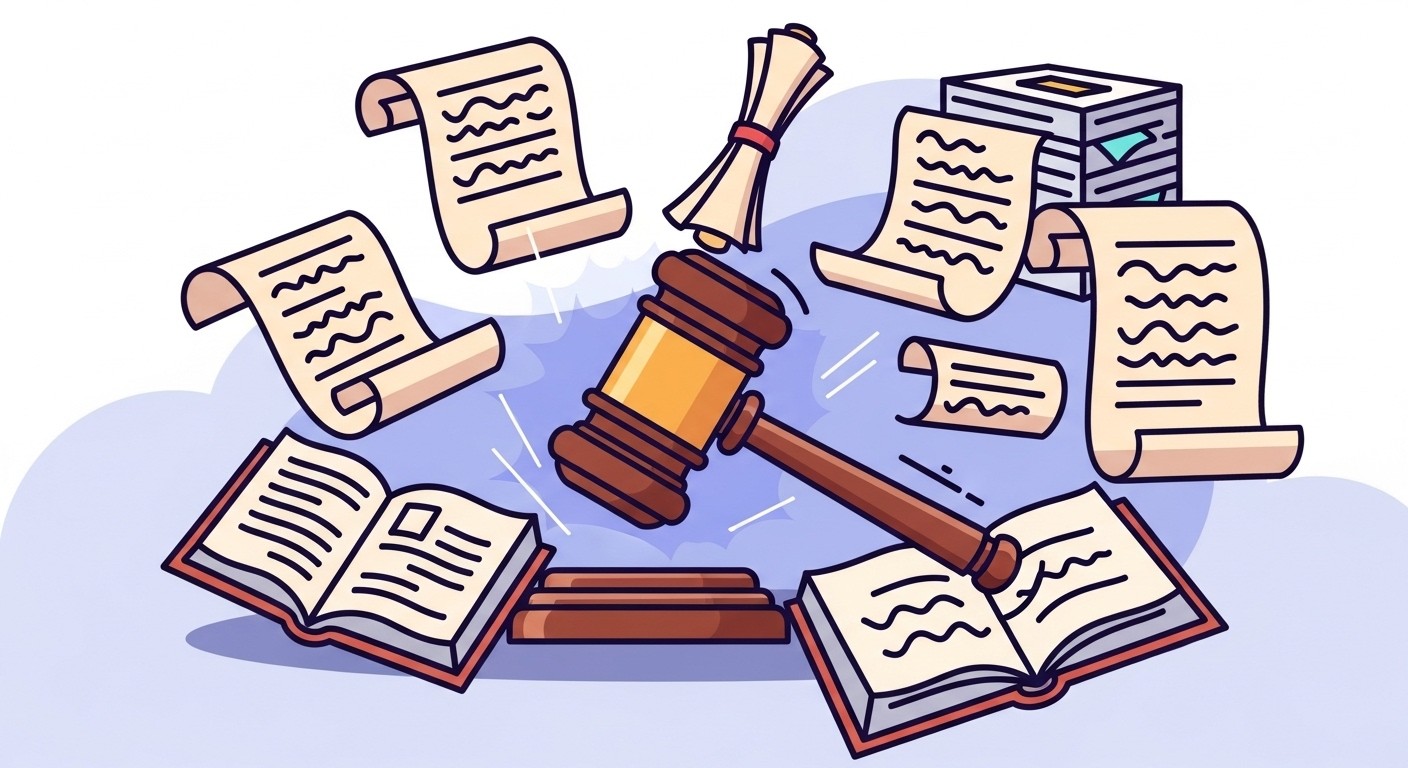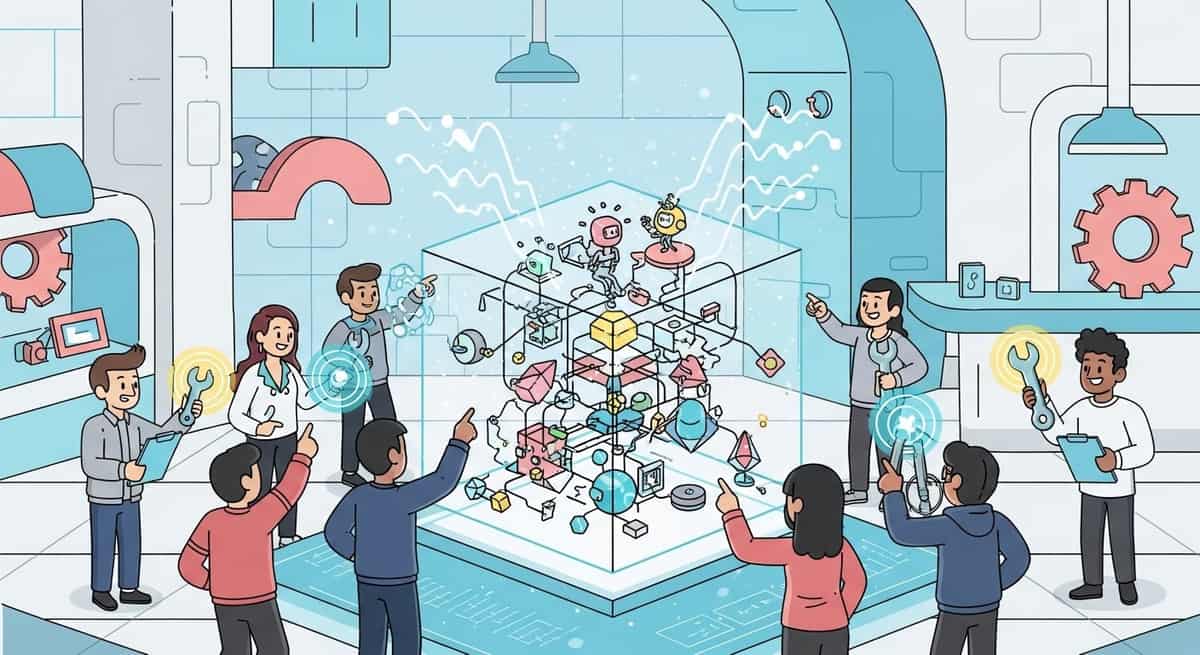Anthropic Pays $1.5B in Landmark AI Copyright Case

Anthropic's agreement to pay a minimum $1.5 billion to settle a class-action copyright lawsuit represents the largest publicly reported copyright recovery in history and establishes critical legal precedents that will reshape how AI companies acquire training data. The settlement, announced in early September 2025, stems from allegations that Anthropic used over 500,000 pirated books from sites like Library Genesis and Pirate Library Mirror to train its Claude large language models.
The case, Bartz et al. v. Anthropic PBC, filed in the Northern District of California, centered on Anthropic's training data practices rather than the typical fair use debates surrounding AI development. Unlike most AI copyright disputes that focus on whether training on lawfully acquired content constitutes fair use, this case turned on Anthropic's admitted reliance on pirated digital libraries, creating a clearer path to liability.
Link to section: The Settlement's Financial Structure and Legal FrameworkThe Settlement's Financial Structure and Legal Framework
The settlement establishes a per-work compensation model of $3,000 for each of approximately 500,000 copyrighted works allegedly downloaded from piracy sites. If the final count exceeds 500,000 titles, Anthropic will pay an additional $3,000 per work, potentially pushing the total well beyond the minimum $1.5 billion figure.
This structure reflects careful negotiation between statutory damage ranges under 17 U.S.C. Section 504(c), which allows for $750 to $30,000 per infringed work, with higher amounts for willful infringement reaching $150,000. The $3,000 figure strikes a balance above the minimum threshold while avoiding potentially catastrophic exposure that could have reached tens of billions of dollars.
The settlement's scope remains deliberately narrow. It covers only Anthropic's past acquisition, retention, and use of identified pirated works for AI training and related research activities occurring before August 25, 2025. Critically, it does not protect Anthropic from future claims involving other copyrighted works or potential infringement through Claude's outputs. This limitation means rights holders could still pursue separate lawsuits if Claude generates content that infringes their copyrighted works.
Link to section: Judge Alsup's Landmark Ruling on AI Fair UseJudge Alsup's Landmark Ruling on AI Fair Use
Before the settlement negotiations, Judge William Alsup issued a groundbreaking mixed ruling in June 2025 that will influence AI copyright law for years. The decision created a clear legal distinction between different types of AI training data use:
For lawfully purchased books, Judge Alsup found Anthropic's use "among the most transformative we will see in our lifetimes" and granted summary judgment on fair use grounds. This ruling provides significant protection for AI companies that properly license or purchase their training materials, following the Supreme Court's transformative use doctrine from Campbell v. Acuff-Rose.
However, the court rejected fair use defenses for any works obtained through piracy, declaring that using pirated copyrighted works is "inherently, irredeemably infringing" regardless of the transformative nature of the subsequent AI training. This creates a bright-line rule that acquisition method matters as much as intended use in AI copyright analysis.

Link to section: Business Model Implications Across the AI IndustryBusiness Model Implications Across the AI Industry
The settlement forces a fundamental recalculation of training data economics across the AI industry. Companies building large language models now face a stark choice: invest significantly more in legitimate data licensing or accept substantial legal and financial risks from using questionable sources.
The $3,000 per work figure provides a concrete benchmark for data valuation. Publishers and authors now have precedent for demanding similar compensation in licensing negotiations, potentially increasing training data costs by orders of magnitude. A typical foundation model training dataset containing millions of books could cost hundreds of millions or billions of dollars under this pricing framework.
Anthropic's experience also demonstrates that even well-funded AI companies with over $7 billion in total funding can face existential risks from copyright litigation. The company's potential exposure in this case could have reached tens of billions of dollars, forcing settlement negotiations despite strong fair use arguments for purchased content.
The settlement's narrow scope creates ongoing compliance challenges. AI companies must now maintain detailed provenance records for all training data, implement robust content filtering systems, and develop clear policies distinguishing between lawfully acquired and potentially infringing materials. This operational overhead will particularly burden smaller AI startups lacking enterprise-grade legal and compliance infrastructure.
Link to section: Competitive Positioning and Market DynamicsCompetitive Positioning and Market Dynamics
The settlement significantly strengthens the competitive position of companies with extensive content libraries and licensing agreements. Organizations like Microsoft, with its partnerships across publishing, news, and educational content, gain substantial advantages over pure AI startups that relied on freely available or questionable data sources.
Publishers are already leveraging this precedent to demand higher licensing fees and more restrictive terms. Sweden's music rights society introduced a first-of-its-kind licensing system specifically for AI training, signaling how content industries will monetize AI development going forward. Similar frameworks are emerging across book publishing, journalism, and other content sectors.
The settlement also creates interesting dynamics in open-source versus proprietary AI development. Open-source models trained on properly licensed data may gain credibility advantages over proprietary systems with questionable training data provenance. However, the high costs of legitimate licensing may make it economically unfeasible for open-source projects to compete with well-funded commercial alternatives.
Link to section: Leadership Strategy and Risk ManagementLeadership Strategy and Risk Management
Anthropic's settlement strategy reflects broader changes in AI industry leadership approaches to legal risk. Rather than fighting a potentially winnable but expensive legal battle, the company chose certainty over uncertainty, preserving resources for core AI development and avoiding prolonged litigation that could have damaged customer relationships.
The timing of the settlement also suggests strategic considerations around Anthropic's funding and growth trajectory. With the company reportedly pursuing additional investment rounds at valuations exceeding $100 billion, removing major legal overhang likely improved deal terms and reduced due diligence friction for potential investors.
Anthropic's requirement to destroy pirated libraries within 30 days of final judgment demonstrates the settlement's operational impact. The company must rebuild portions of its training infrastructure using only properly licensed content, potentially affecting model performance and requiring significant engineering resources.
Link to section: Implications for Developers and Technical ArchitectureImplications for Developers and Technical Architecture
The settlement establishes new technical requirements for AI development teams. Companies must implement comprehensive data lineage tracking, automated content filtering, and provenance verification systems. These requirements add complexity to training pipelines but are becoming essential for legal compliance.
Developers working on foundation models now need expertise in copyright law, data licensing, and content management alongside traditional machine learning skills. This interdisciplinary requirement is driving demand for professionals who understand both technical AI development and intellectual property law.
The settlement also affects model architecture decisions. Companies may increasingly favor training approaches that can demonstrate clear separation between different data sources, enabling selective removal or modification of training data based on licensing status. This could drive adoption of techniques like differential privacy, federated learning, or modular training approaches.
Link to section: Long-term Industry Evolution and Precedent SettingLong-term Industry Evolution and Precedent Setting
The Anthropic settlement establishes precedents that will influence AI development for the next decade. The clear legal distinction between purchased and pirated content creates a framework for evaluating training data practices across the industry. Companies like OpenAI, Google, and Meta likely face similar scrutiny of their training data sources.
The settlement's narrow scope regarding output infringement leaves major questions unresolved. Future litigation will likely focus on whether AI-generated content infringes copyrighted works, potentially creating additional layers of liability for AI companies. This could drive development of more sophisticated output filtering and attribution systems.
International implications are also significant. While this settlement covers U.S. copyright law, similar principles may influence regulatory approaches in Europe, Asia, and other jurisdictions developing AI governance frameworks. The European Union's AI Act and similar regulations worldwide increasingly emphasize transparency and accountability in training data practices.
Link to section: Market Timing and Broader Economic ContextMarket Timing and Broader Economic Context
The settlement occurs during a critical period for AI industry maturation. As AI models become integral to business operations across industries, legal certainty becomes increasingly valuable. Companies deploying AI systems need assurance that their technology partners have addressed fundamental legal risks.
The timing also coincides with broader discussions about AI regulation and safety. The settlement demonstrates that market mechanisms and existing legal frameworks can address some AI-related concerns without requiring new legislation, potentially influencing regulatory approaches globally.
Investment patterns in the AI sector are already shifting based on these legal developments. Venture capital firms are conducting more thorough due diligence on training data practices, and later-stage investors are demanding comprehensive legal assessments before major funding rounds.
Link to section: Risk Assessment and Future OutlookRisk Assessment and Future Outlook
The settlement creates both risks and opportunities for different market participants. Established technology companies with extensive content partnerships and legal resources are positioned to benefit from higher barriers to entry in AI development. Startups and open-source projects may struggle with increased compliance costs and legal complexity.
However, the precedent also creates opportunities for innovation in data licensing, synthetic data generation, and privacy-preserving training techniques. Companies developing solutions for compliant AI training data acquisition could capture significant market share as compliance requirements intensify.
The settlement's limitations around output infringement suggest additional legal challenges ahead. As AI systems become more capable of generating human-like content, the boundary between fair use and infringement in AI outputs will likely generate new litigation and potentially more settlements.
Content creators and publishers gain significant leverage from this precedent but must balance enforcement with enabling beneficial AI innovation. Overly restrictive licensing could drive AI development offshore or toward synthetic alternatives, potentially reducing long-term licensing revenue opportunities.
The Anthropic settlement fundamentally alters the economics and legal landscape of AI development, establishing clear costs for improper training data use while providing a roadmap for compliant practices. As the AI industry continues its rapid evolution, this precedent will likely influence everything from startup formation to international AI governance frameworks, making it one of the most significant legal developments in artificial intelligence history.

